In the digital age, the way we organize, categorize, and access information has transformed dramatically. From social media platforms to online libraries, effective tagging systems play a crucial role in enhancing discoverability and user engagement. Among these, the concept of literoticatags has emerged as a specialized form of literary tagging, designed to streamline the classification of literary content, foster community interaction, and facilitate personalized recommendations. This article delves into what literoticatags are, their significance, how they function, and their potential impact on writers, readers, and digital literary ecosystems.
What Are Literoticatags?
The term “literoticatags” is a portmanteau combining “literary” and “tags,” referring to a system of keywords or labels specifically tailored for literary works. These tags serve to describe themes, genres, styles, characters, settings, emotions, and other critical aspects of a literary piece. Unlike generic tagging systems, literoticatags are often curated with a focus on the nuances of literature, providing a richer and more precise classification.
Imagine an online storytelling platform where a poem about resilience in a post-apocalyptic world is tagged with “dystopian,” “resilience,” “hope,” “survival,” and “poetry.” Such detailed tagging enables readers interested in those themes to find relevant works with ease, fostering a more engaging and personalized literary experience.
The Significance of Literoticatags
- Enhanced Discoverability:
One of the primary benefits of literoticatags is making literary content more discoverable. Readers often search for specific themes or genres, and well-structured tags help surface relevant works efficiently. For writers, this means increased visibility and a better chance to reach their target audience. - Community Building:
Literary communities thrive on shared interests and themes. Literoticatags facilitate connections among writers and readers who resonate with similar topics. For instance, a writer exploring themes of mental health can tag their work accordingly, attracting an audience interested in that subject matter and fostering discussions. - Content Organization:
Digital libraries and platforms host vast amounts of literary content. Literoticatags help organize this content systematically, making navigation intuitive. This organization benefits platforms like Wattpad, Archive of Our Own (AO3), and other online communities dedicated to creative writing. - Personalized Recommendations:
Advanced algorithms utilize tags to suggest content tailored to individual preferences. The more detailed and accurate the tags, the better the recommendations. This personalization enhances user engagement and satisfaction. - Academic and Literary Analysis:
Scholars and critics can use literoticatags to analyze trends, themes, and stylistic elements across large datasets of literary works. This can lead to new insights into literary movements, authorship, and cultural influences.
How Literoticatags Function
Implementing an effective literoticatag system involves several key steps:
- Tag Creation:
Tags should be concise, relevant, and consistent. Platforms often develop controlled vocabularies or taxonomies to standardize tags, preventing synonyms or variations that could fragment search results. - User Contribution:
Many platforms allow users to add tags, fostering community participation. However, moderation is essential to maintain quality and relevance. - Hierarchical Structuring:
Some systems organize tags hierarchically, with broader categories branching into more specific sub-tags. For example, “Genre” might branch into “Science Fiction,” “Romance,” “Mystery,” etc., with further sub-categories like “Cyberpunk” or “Historical Romance.” - Integration with Search and Recommendations:
Tags are integrated into search algorithms and recommendation engines to improve accuracy and user experience.
Challenges and Future Directions
While literoticatags offer numerous advantages, they also face challenges:
- Standardization:
Achieving consensus on tag definitions can be difficult, especially in diverse communities. Over-tagging or inconsistent tagging can diminish effectiveness. - Subjectivity:
Literary themes and interpretations can be subjective. What one reader perceives as “hope” might differ from another’s perspective, affecting tag accuracy. - Maintenance:
Keeping tags relevant and updated requires continuous effort, especially as new themes and genres emerge.
Looking ahead, advances in artificial intelligence and machine learning promise to refine literoticatag systems further. Automated tagging using natural language processing can analyze texts to generate accurate, context-aware tags, reducing manual effort and increasing consistency.
The Impact on Literary Ecosystems
The integration of literoticatags into digital literary platforms signifies a shift towards more user-centric, organized, and accessible literary environments. They empower creators to categorize their works effectively, help readers discover content aligned with their interests, and facilitate scholarly research.
Moreover, as self-publishing and online literary communities grow, the importance of efficient tagging systems becomes even more pronounced. Literoticatags can democratize literature, breaking down barriers of discovery and enabling diverse voices to find their audiences.
Conclusion
Literoticatags represent a vital tool in the digital literary landscape, bridging the gap between creators and consumers through precise, meaningful classification. By enhancing discoverability, fostering community, and enabling sophisticated data analysis, they contribute significantly to the evolution of online literature. As technology advances, the potential for more intelligent, automated, and user-friendly literoticatag systems will only expand, enriching the way we create, share, and experience literature in the digital age.
If you’d like a different focus or additional details, feel free to ask!



